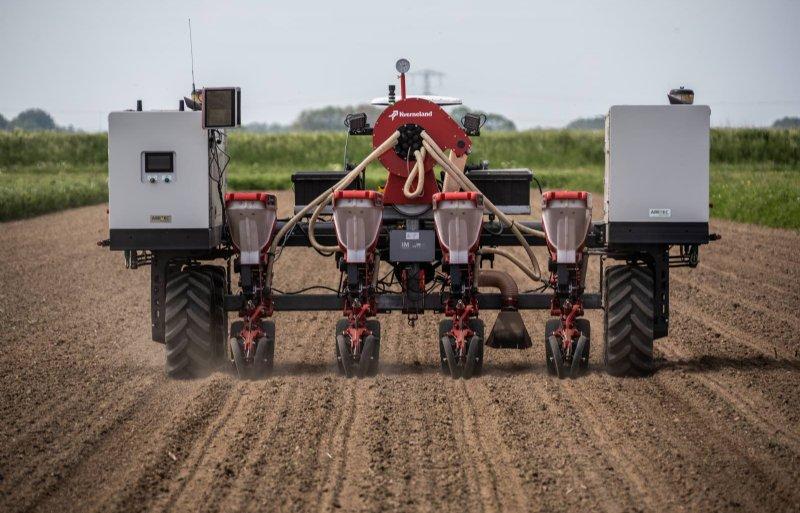Research by Wageningen University & Research (WUR) into smart agricultural and horticultural robots will receive 12 to 17 million euros from the Nxtgen High-Tech program. This contribution from the National Growth Fund of the Ministry of Economic Affairs and Climate should give a major boost to agrifood technology.
© Huisman Media
The goal is to develop methods to grow crops as autonomously as possible. Robotics plays an important role in making agriculture and horticulture less dependent on manual labor and the scarce labor force.
From the National Growth Fund and the Nxtgen Hightech program, more than 1 billion euros can be distributed within the high-tech sector for the preservation of Dutch business and knowledge institutions. Of this, nearly 200 million euros is earmarked for research related to hands-free agrifood.
Within the fund, robotic technology for agriculture and horticulture is one of the six application areas, alongside clean energy, laser communication, drug development, faster chips and light materials.
Making systems user-friendly
WUR program manager Erik Pekkeriet of the Agro Food Robotics research explains that in the research on smart agriculture and horticulture robots, the university is working with dozens of partners, mainly from industry. He says the robotics research projects build on existing systems.
'A lot is already possible,' says Pekkeriet. But the individual systems are not yet user-friendly. We especially want to simplify the virtual environment for the farmer.'
In order to achieve the goals WUR is focusing on technical developments and extensive testing and implementation of robotization on a farm scale. Farms, greenhouses and factories of the future will be built throughout the country, with each application area having its own location. By 2029, most of the new systems from the project should be ready for use.
Source: newharvest
